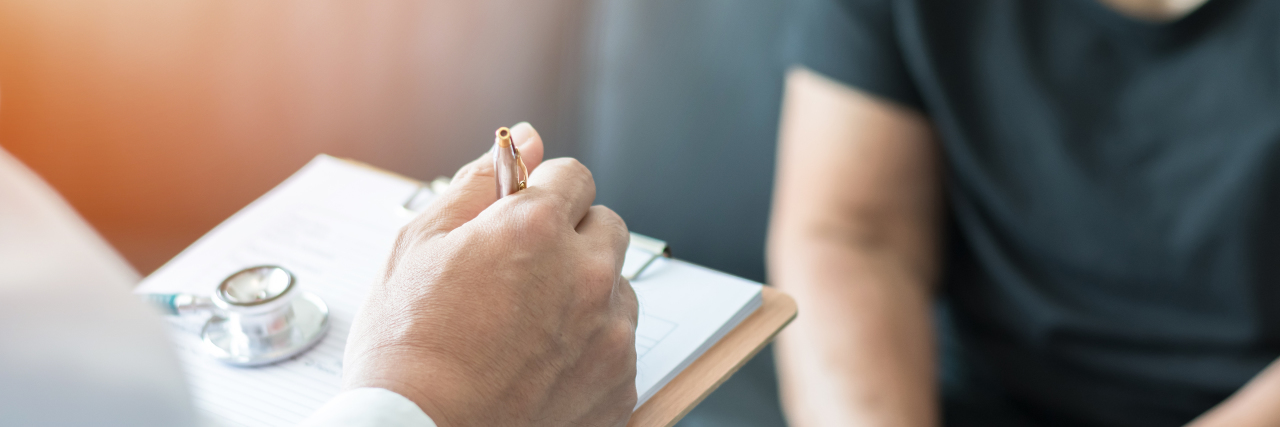As I write this, I’m on a train home, but something happened that made me need to tell you a story and the lessons I’ve learned today.
But background and context first. I’m disabled.
I don’t look it, but I have a chronic pain condition that means I strain, sprain, and dislocate regularly, and it means I know my body very well. I know more about anatomy than most people, and I’m an expert in not showing you the pain I feel all the time. I believe you do not need to know how many of my ribs are currently dislocated or the last time I had to put my thumb back in place after I tried to do something silly like open my own front door without supervision.
But sometimes I can’t hide it. Sometimes it’s too much. At times like that, I rely on the kindness of strangers. I rely on people showing me care when they don’t need to. I rely on the fact that the world is generally a good place.
Today was one of those days.
I admit I’ve been struggling recently. I’ve been hiding a new pain. Twisting and bending has become unbearable. But today it got worse. Today I was at my swanky standing desk (there’s got to be one good thing about being in pain all the time) and suddenly I couldn’t breathe; I couldn’t move. I was literally in tears at my desk. I was hiding down behind my monitor being thankful that the guys behind me weren’t in today, and even more thankful that my screen hides me from everyone else.
Why do I hide it like that? Because even now, even though I am open about what’s wrong with me, even though I know my organization fully supports me and people like me, I am still scared.
I am still scared my employer will sack me for being disabled. I am still scared people will look down on me because I can’t do some things. I am still scared that I will join the 50 percent of disabled people in the U.K. who do not work. I am still scared you will hate me or worse, pity me just because of what I am.
Like the true pain management professional I am, I went through all my techniques. Deep breathing, gentle movement, I even managed to do some discreet stretches when no one could see. I took my pain killers, even though I knew they’d impact my mental agility. And still my back felt like an entire university rugby team was stampeding over it to get to the bar.
So I did what we would all do in that moment. I finished what I was doing, tears running down my face (because I’m classy like that). Then I went to a walk-in clinic to see if they could give me more or better pain killers to make sure I could still get to work tomorrow. It’s literally what they’re for, right? If you’ve hurt yourself, you go see someone who can help.
The nurses were amazing. But the doctor told me that he wasn’t going to do anything and I should (and I quote) “suck it up and go to a sauna.” Because that would be better. Because I was wasting his time. Because to some medical professionals, people like me just don’t matter.
So I apologized that he felt I was wasting his time.
But then it dawned on me, I’m actually more sorry that he felt it was OK to show he didn’t believe me. Every time someone does that, it hurts me. It feels like a physical pain. It still upsets me, and I’m already in enough pain; I do not need anyone else to add to it on purpose.
I’ve always believed you should treat everyone with as much kindness as you can because you don’t know their story, and today has underlined that for me. Today has reminded me that given a choice, I should give people the benefit of the doubt way more often. And so should we all.
But it’s got me to thinking; how do we do that? In a practical sense, how can I make sure I’m not making other people’s pain worse? I know the fear they feel; I know why they don’t tell me about what’s going on. But I don’t know the answer.
We can test for empathy, emotional intelligence and caring. But we can’t test for all challenges or additional needs. We rely on other people telling us what they are going through.
And they’re not doing that.
As an employer, I work with my team and our leaders to make sure we’re fair, accessible, and that our policies do not make work a painful place to be. But I still rely on others to tell me what good looks like. And they don’t.
Because like me, they’re scared.
So right now, I commit to seeing the emotional impact of what I do in the same way as I see physical harm. I will talk more, be even more vocal about my pain, and I will push as hard as I can to make sure everyone who lives with pain in any way is believed.
What will you do to make it easy to be kind today?
This story originally appeared on LinkedIn.
Getty image by Noipompan.

